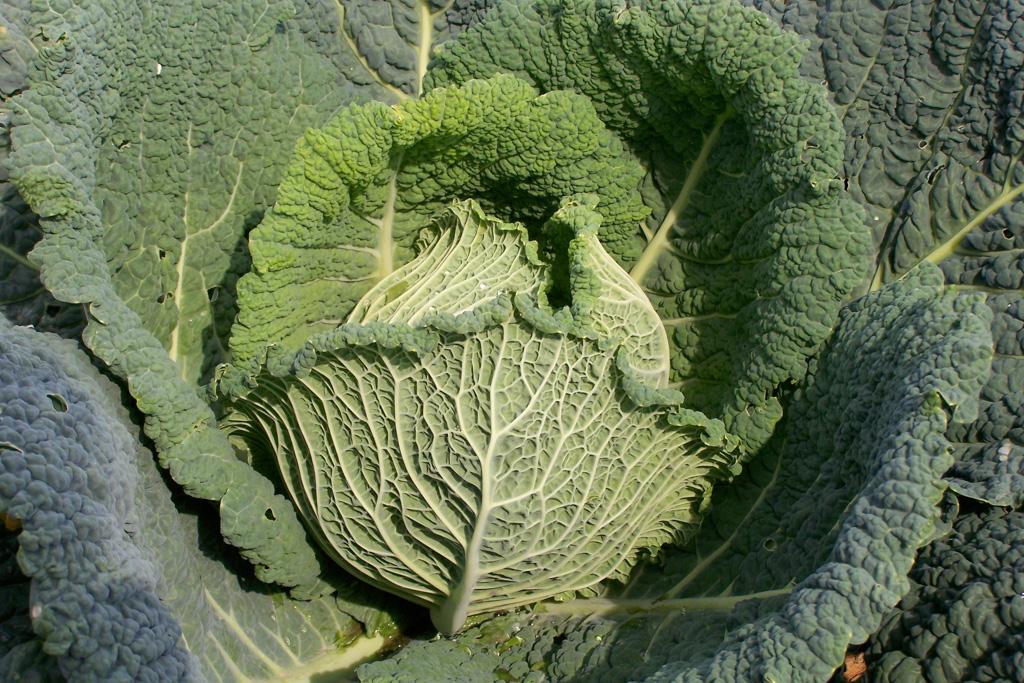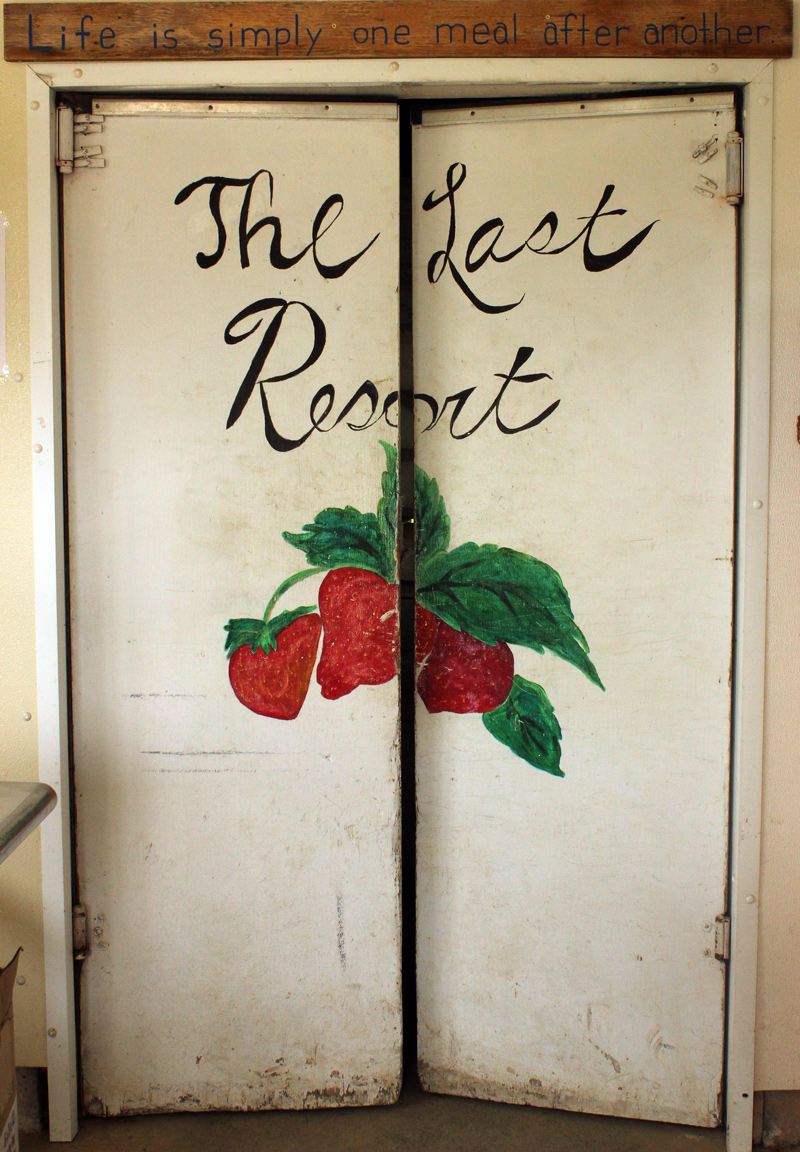 One Meal After Another: A farmer social at the Last Resort Farm
One Meal After Another: A farmer social at the Last Resort Farm
Text & photos by Grace Butler
[ Join NOFA at one of our upcoming pizza socials! ]
The day was marked by humid heat. It was the kind of heat expected for late June, and it was welcome after a spell of cold and rain. Thighs began to sweat against vinyl car seats. Cars congregated on roadsides next to swimming holes. People trotted down banks towards rivers, fast and slow moving alike, to wash the sweat and heat from their skin. When they walked back to the road, the forest floor clung to their wet feet. Along Wes White Hill this could be witnessed.
Life hummed a little louder with the warmth and the road was busy with people. Cyclists, walkers, boaters and runners moved along in the light that dappled all of us. They didn’t move quickly. This was a place for slowness. The dirt floor and green roof demanded our time. Driving towards Monkton at 30 miles per hour felt too fast. Anything beyond a slow saunter felt too fast. Still, over tall hills and through green corridors was the promise of a place of equal depth accompanied by the people who live there. With this promise in mind, we keep driving even with the backs of our thighs sticking to the seat beneath them.
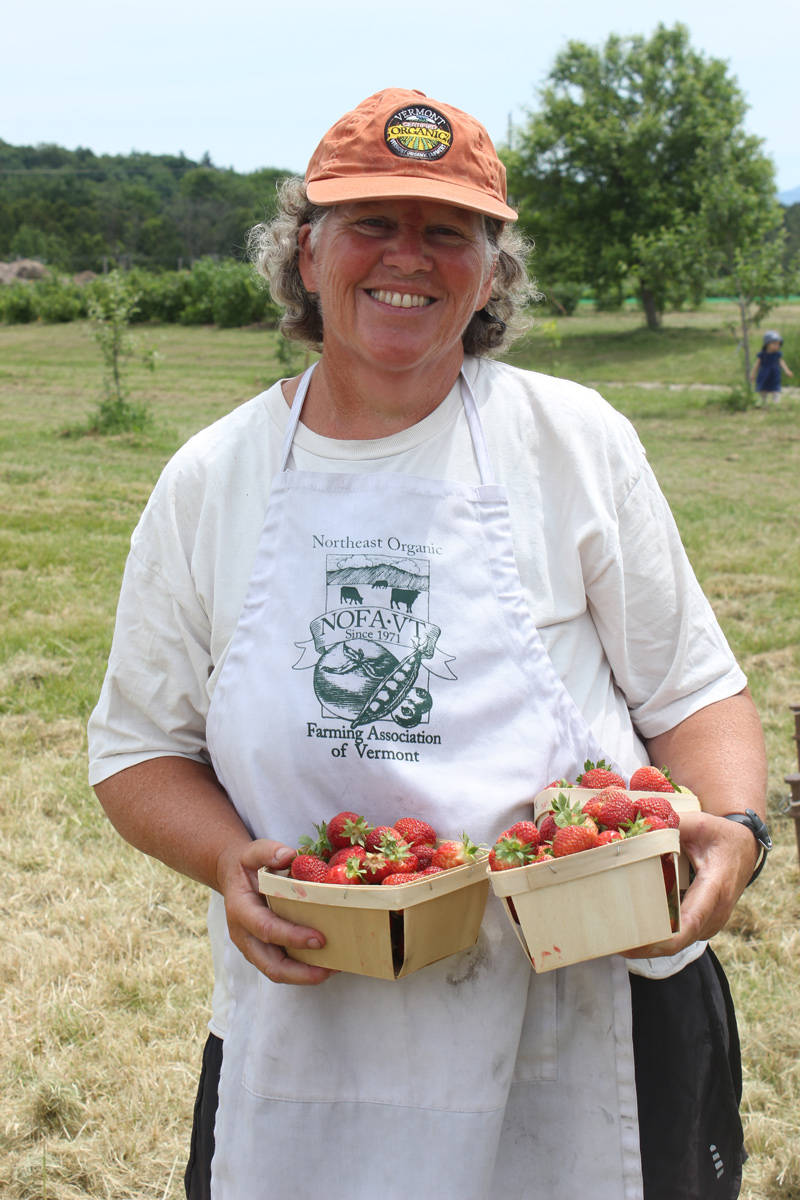 The Last Resort Farm sat under the midday sun and brimmed with visitors on June 19th. An anniversary was being celebrated. In their thirty years in Monkton, Eugenie Doyle and Sam Burr have transitioned from dairy farming to hay, strawberry, vegetable and egg production. In June, it is the strawberries that have pulled in crowds. The fields were picked clean by noon but people still moved over the rows hopefully. Children sat and ate. Their faces and hands were stained. This made their pilfering more endearing. One boy had sat on an overly ripe berry and the seat of his pants was smeared pink. The berry pickers flowed down towards a tent and tables set up outside the barn.
The Last Resort Farm sat under the midday sun and brimmed with visitors on June 19th. An anniversary was being celebrated. In their thirty years in Monkton, Eugenie Doyle and Sam Burr have transitioned from dairy farming to hay, strawberry, vegetable and egg production. In June, it is the strawberries that have pulled in crowds. The fields were picked clean by noon but people still moved over the rows hopefully. Children sat and ate. Their faces and hands were stained. This made their pilfering more endearing. One boy had sat on an overly ripe berry and the seat of his pants was smeared pink. The berry pickers flowed down towards a tent and tables set up outside the barn.
Community members, neighbors, farm hands and lucky visitors ate pizza from the outdoor oven that added heat to the day. They sat together and found rest in the shade the tent, and a nearby willow, offered. A long meal was shared around long tables. Uneven ground created unintentional rocking chairs. Conversation swelled in the tent before lowering to listen to the farm’s family speak.
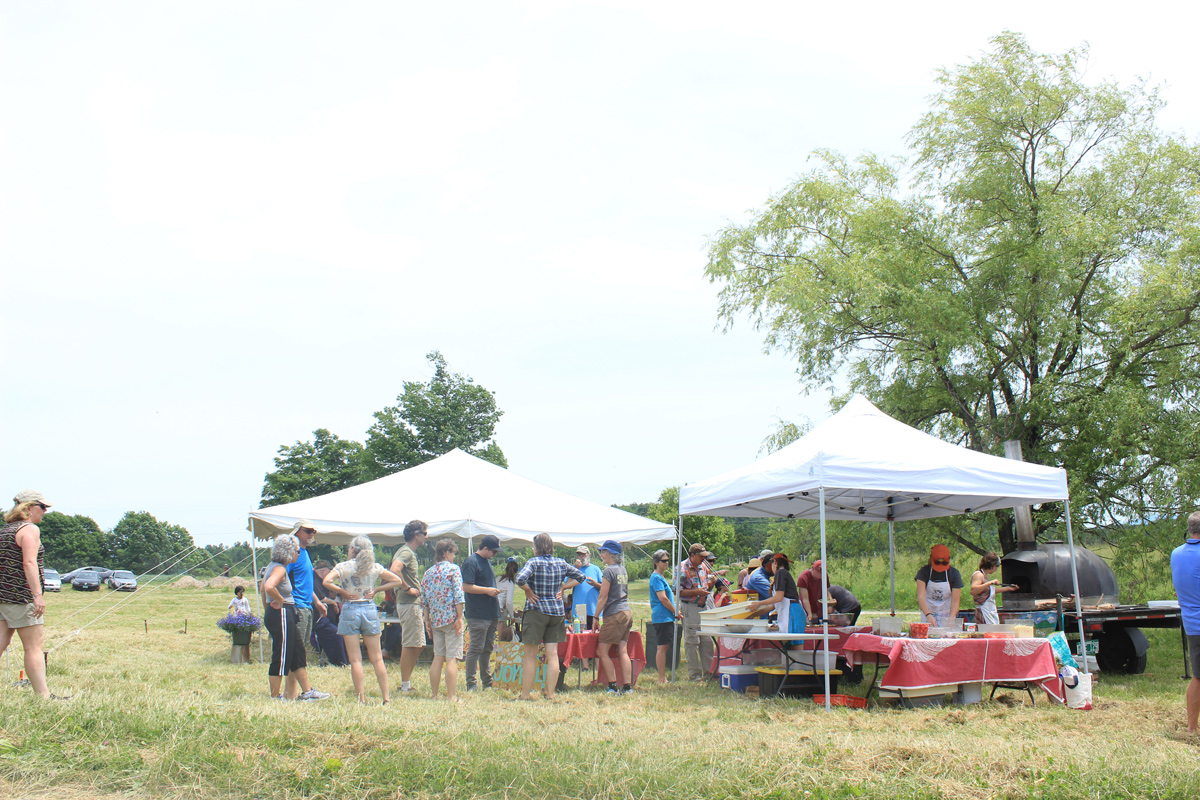
Eugenie stood strongly with her hands folded in front of her. Sam stood just behind her with their son, Silas. After a short greeting, a thanks, and an introduction of herself and her family, Eugenie began to speak about the Last Resort Farm and its place in the community. It became abundantly clear, very quickly, that this farm is far from insular. They have had a long relationship with the Farm to School program that included pen pal letters and farm visits. They’ve lead the way towards cleaning up a local waterway called pond brook. They employ lots of kids from the area. On this last point Eugenie said, “at least they’ll never grow hungry.” Those words could never come hollow from a mother or a farmer, let alone a woman who is both. 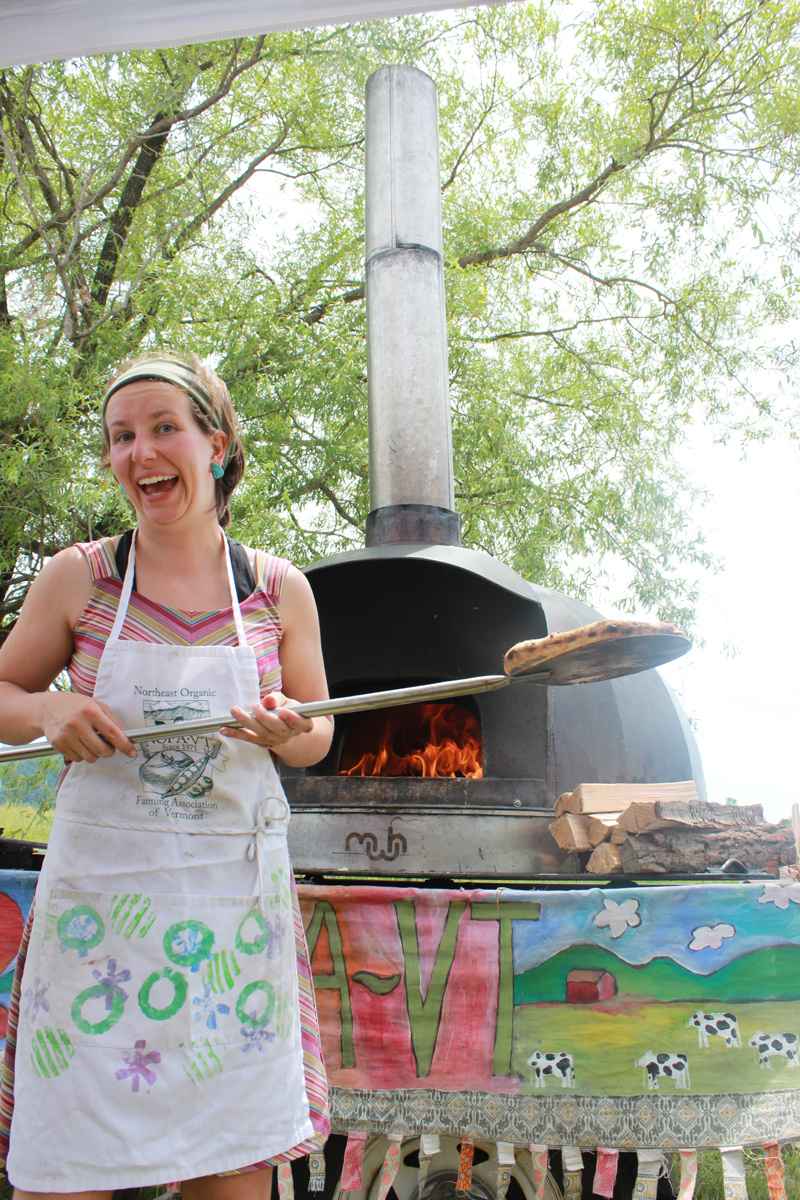
While we ate, she and Sam and Silas spoke on. They spoke about the process of transitioning the farm to Silas. They spoke about advocating for causes around local food. They spoke about NOFA. Eugenie called the organization, “the club we really want to be a part of.” It wouldn’t be far from the truth to assume that some of the NOFA employees present blushed.
The meal ended and a farm tour ensued. A crowd trundled behind Sam while he grinned and waved his arms about. After all, this is a good looking farm that should be shown off once in a while. The crowd and heat were most easily avoided in the barn entrance which serves as the farm stand. Two large swinging doors share a painting of a big red strawberry inside the barn. Above these doors is a wooden sign with blue lettering. It says Life Is Simply One Meal After Another.
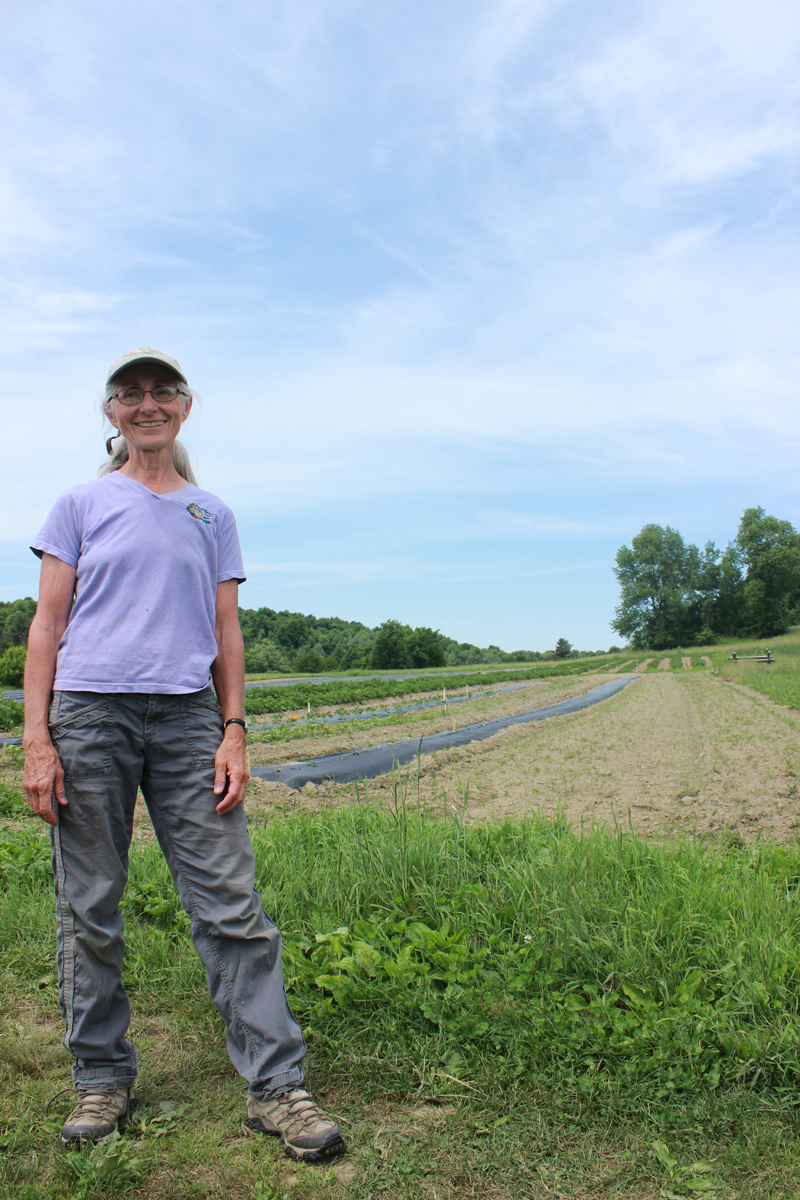 Eugenie’s words carry even more weight after reading this. The strawberry on the doors split as they opened and Silas came into the room. Out in the sunlight he talked about the process of taking over the farm. He wanted to amend something his mother had said. He didn’t like the term “club.” He felt that food, especially organic and local food, should not feel like a club. It should not feel exclusive and it should not feel out of reach. Silas crossed his arms, which were flecked with hay, and looked up. He talked about his plans to begin making homegrown food even more accessible for the community. He must be like his mother. “At least they’ll never go hungry.”
Eugenie’s words carry even more weight after reading this. The strawberry on the doors split as they opened and Silas came into the room. Out in the sunlight he talked about the process of taking over the farm. He wanted to amend something his mother had said. He didn’t like the term “club.” He felt that food, especially organic and local food, should not feel like a club. It should not feel exclusive and it should not feel out of reach. Silas crossed his arms, which were flecked with hay, and looked up. He talked about his plans to begin making homegrown food even more accessible for the community. He must be like his mother. “At least they’ll never go hungry.”
The Last Resort Farm and its family deserve a thanks for all the goodness they give. Garlic, hay, strawberries, greens, highly regarded eggs, yoga classes, literature, church work, environmental involvement, and agricultural education. The list is no doubt much longer than this. There is no separating food, family, community and land. Visiting this farm illuminated the personal connections that make this statement true. It seems that the people who give with little restraint are the ones who are the most grateful. The day ended with a quiet conversation with Eugenie. She said that when the work got hard she just reminded herself how lucky she was. She stood with a greenhouse behind her, green hills to one side, a barn to the other and her hands in front of her.

